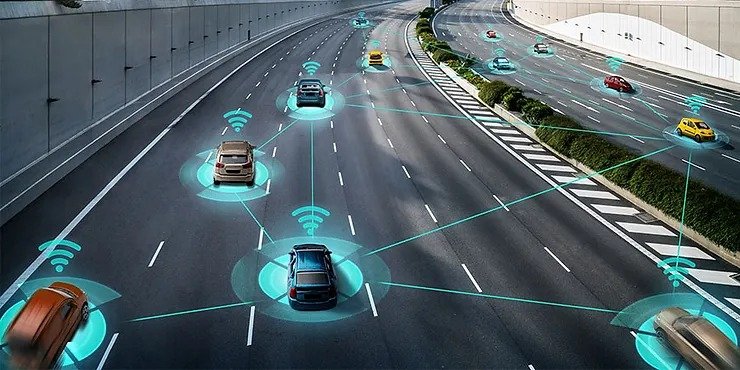Intelligent Transport Systems (ITS) are revolutionizing the way we travel and transport goods, and India is no exception to this trend. With the advent of new technologies and the increasing demand for efficient and sustainable transportation, ITS is quickly gaining traction in India. In this blog post, we will explore some of the emerging trends in ITS in India and how they are shaping the future of transportation in the country.
Connected and Autonomous Vehicles (CAVs)
One of the most significant trends in ITS is the deployment of connected and autonomous vehicles (CAVs) in India. CAVs are vehicles that are equipped with advanced sensors and communication technologies that allow them to interact with each other and their surrounding infrastructure. These vehicles can communicate with traffic signals, road signs, and other vehicles, which can help reduce congestion and improve safety on the roads.
In India, the deployment of CAVs is still in its early stages, but the government has taken several initiatives to promote the development of this technology. In 2018, the Ministry of Road Transport and Highways issued guidelines for testing and deploying autonomous vehicles on Indian roads, and several Indian automakers are now testing their autonomous vehicles on public roads.
Smart Traffic Management Systems
Another emerging trend in ITS is the deployment of smart traffic management systems. These systems use advanced data analytics and machine learning algorithms to monitor traffic flows and adjust traffic signals in real-time, based on the volume and direction of traffic. This can help reduce congestion and improve the overall efficiency of the transportation system.
Several Indian cities, including Delhi, Mumbai, and Bangalore, have already implemented smart traffic management systems, and more cities are expected to follow suit in the coming years. These systems can also be integrated with other ITS solutions, such as CAVs and public transportation systems, to provide a seamless and efficient travel experience for commuters.
Electric Vehicles (EVs)
The adoption of electric vehicles (EVs) is another significant trend in ITS in India. With the increasing concern for climate change and air pollution, there is a growing demand for cleaner and more sustainable modes of transportation. EVs can help reduce carbon emissions and improve air quality, making them an attractive alternative to traditional gasoline-powered vehicles.
The Indian government has set a target of achieving 30% electric vehicle penetration by 2030, and several incentives and subsidies have been offered to promote the adoption of EVs. Additionally, several Indian automakers, including Tata Motors and Mahindra & Mahindra, have launched electric vehicles in the Indian market, and more are expected to follow suit in the coming years.
Mobility-as-a-Service (MaaS)
The concept of Mobility-as-a-Service (MaaS) is also gaining traction in India. MaaS refers to the integration of various modes of transportation, such as public transit, ride-sharing services, and bike-sharing, into a single platform that allows users to plan and pay for their journeys seamlessly. MaaS can help reduce congestion, improve access to transportation, and provide more flexible and affordable travel options for commuters.
Several Indian startups, such as Ola and Uber, have already implemented MaaS solutions in India, and more are expected to enter the market in the coming years. Additionally, the Indian government has launched several initiatives, such as the Smart Cities Mission, to promote the development of smart and sustainable transportation systems in cities across the country.
Conclusion
The emergence of new technologies and the increasing demand for sustainable and efficient transportation are driving the adoption of ITS in India. From connected and autonomous vehicles to smart traffic management systems and mobility-as-a-service platforms, ITS is reshaping the way we travel and transport goods in India. While there are still several challenges and obstacles to overcome, the future of ITS in India looks promising, and it is expected to play a significant role in achieving India’s goals for sustainable

